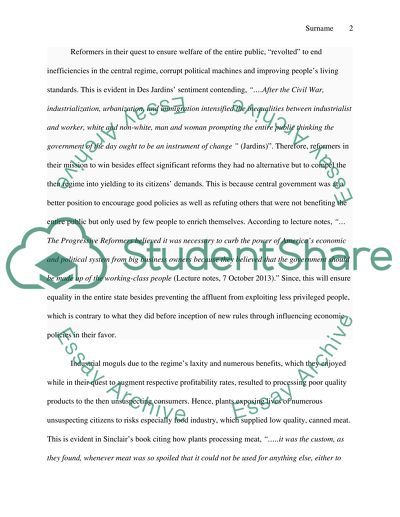Cite this document
(“Why did Progressive reformers believe it essential to curb the power Essay”, n.d.)
Why did Progressive reformers believe it essential to curb the power Essay. Retrieved from https://studentshare.org/history/1487712-why-did-progressive-reformers-believe-it-essential
Why did Progressive reformers believe it essential to curb the power Essay. Retrieved from https://studentshare.org/history/1487712-why-did-progressive-reformers-believe-it-essential
(Why Did Progressive Reformers Believe It Essential to Curb the Power Essay)
Why Did Progressive Reformers Believe It Essential to Curb the Power Essay. https://studentshare.org/history/1487712-why-did-progressive-reformers-believe-it-essential.
Why Did Progressive Reformers Believe It Essential to Curb the Power Essay. https://studentshare.org/history/1487712-why-did-progressive-reformers-believe-it-essential.
“Why Did Progressive Reformers Believe It Essential to Curb the Power Essay”, n.d. https://studentshare.org/history/1487712-why-did-progressive-reformers-believe-it-essential.


